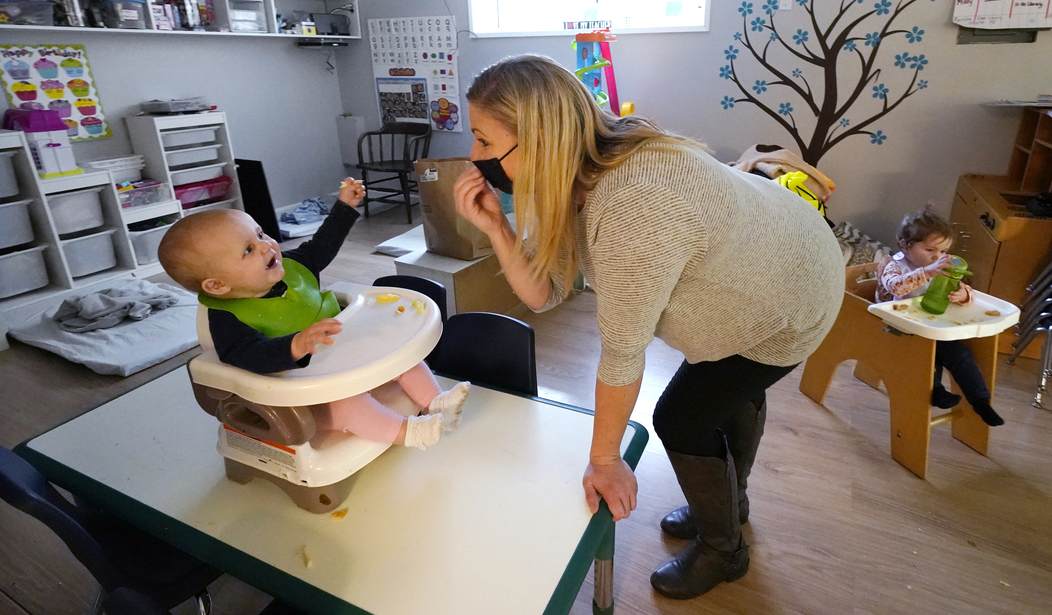A recent study from Ireland found that babies born during the COVID-19 pandemic had “deficits” in social communication, including speech. Who would have thought that locking developing infants in their homes and preventing them from any outside-the-home interaction would end up hindering their development?
The study abstract said, “The SARS-CoV-2 (COVID-19) pandemic was managed with sustained mass lockdowns to prevent spread of COVID-19 infection. Babies born during the early stages of the pandemic missed the opportunity of meeting a normal social circle of people outside the family home.” The study then noted, “Compared with a historical cohort, babies born into lockdown appeared to have some deficits in social communication.”
Ireland had severely restrictive COVID-19 lockdowns, The Post Millennial noted. The lockdown measures included masking, of course. Psychology Today wrote in 2020, “An important source of information for babies from the very first days of life is human faces.” Babies are born with a preference for “face-like shapes” and prefer to look at faces rather than to look at most other things, Psychology Today wrote.
The percentage of Irish babies who can point, wave, and say a definite word dropped during the pandemic. Only 76.6 percent of infants in “the pandemic cohort” could say “one definite and meaningful word,” down from 89.3 percent. Also, 83.8 percent of pandemic-era infants could point (versus the previous 92.8 percent) and 87.7 percent could “wave bye-bye” (versus the previous 94.4 percent), the study said. The percentages come from a 12-month assessment. There was evidence of “significant differences in social communication in the [pandemic-born] cohort compared with the BASELINE [pre-pandemic] cohort.”
“Parentally reported developmental outcomes in a birth cohort of babies born into lockdown during the COVID-19 pandemic may indicate some potential deficits in early life social communication,” the study said, but did warn, “It must be noted that milestones are parentally reported and comparison is with a historical cohort with associated limitations.”
A Johns Hopkins meta-analysis presented evidence in January 2022 that lockdowns were not helpful enough as a tool for mitigating the harms of a pandemic to outweigh the costs of those lockdowns. The meta-analysis said “that lockdowns have had little to no public health effects, [and] they have imposed enormous economic and social costs where they have been adopted.”
The Irish study was still optimistic about pandemic-era babies’ future development, although it did not provide specific scientific evidence why. “Babies are resilient and inquisitive by nature, and it is hoped that with societal re-emergence and increase in social circles, their social communication skills will improve.”










Join the conversation as a VIP Member